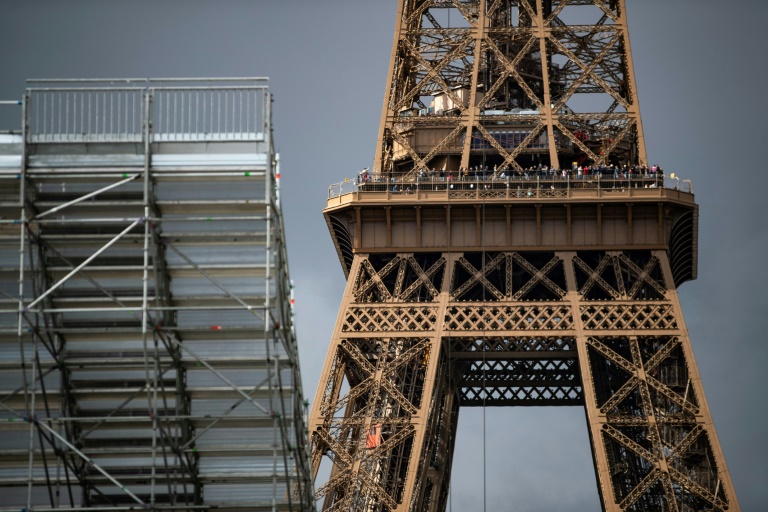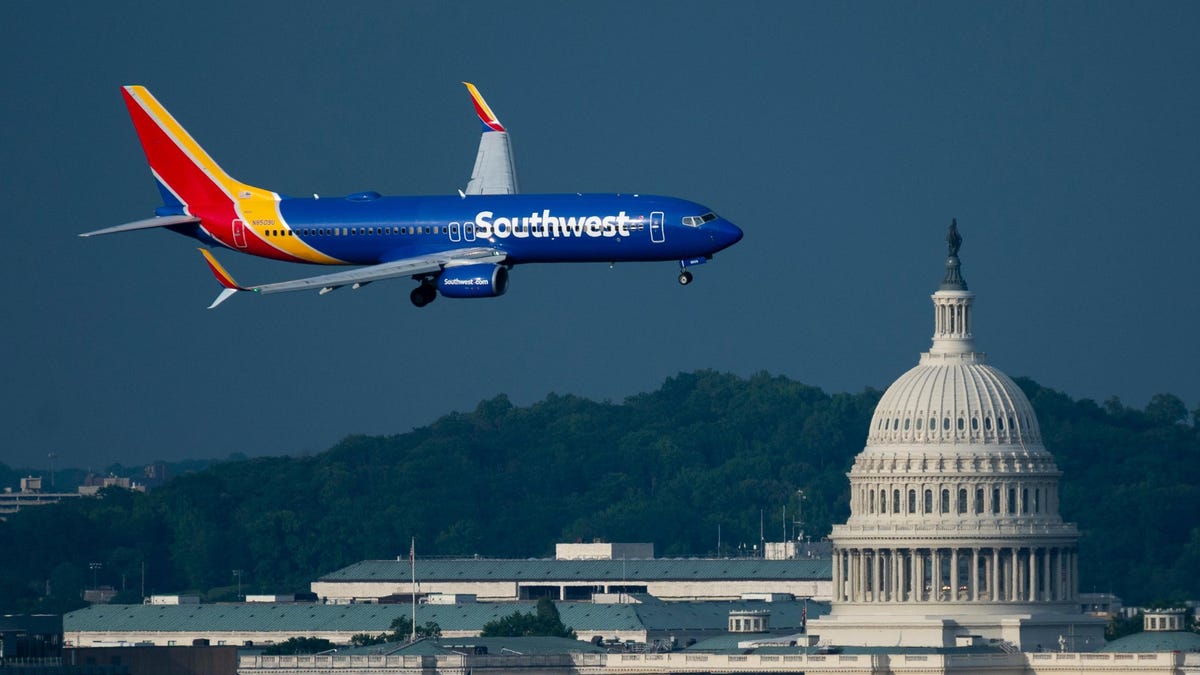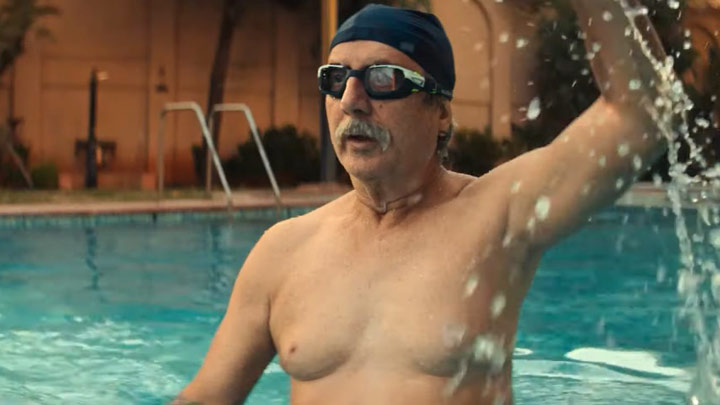In front of the Eiffel Tower, stands are emerging from a tangle of scaffolding, while at the historic Place de la Concorde, forklift trucks buzz around carrying building materials.
Across and around Paris, plans that have been on the drawing board for seven years since the city won the right to host the 2024 Olympics are turning into reality, 100 days from the start of the world’s biggest sporting event.
The flurry of activity, including the hoisting of giant Olympic rings onto the Eiffel Tower, is giving Parisians the chance to glimpse for the first time how the 17-day extravaganza will transform the city.
“You can see them putting the infrastructure up,” sports fan and Paris resident Valentin Fargier, 27, told AFP. “The city’s being tidied up and the monuments are clean. It’s going to be great.”
Unlike in previous Olympics, only two new permanent sports venues have been built for Paris 2024 in a deliberate change of strategy to make the Games cheaper and more “sober.”
An 8,000-seat arena that will host the badminton and rhythmic gymnastics was inaugurated in a deprived part of northern Paris in February, while President Emmanuel Macron cut the ribbon at a new aquatics centre in a nearby suburb on April 4.
Elsewhere, 95 percent of the sport is set to take place in existing venues, or in the temporary stands that are sprouting like mushrooms ahead of the start of the Games on July 26 and the Paralympics on August 28.
Beach volleyball will be played in front of the Eiffel Tower, with archery at the Invalides monument. Skateboarding will take place at Place de la Concorde and the Chateau de Versailles will host the equestrian events.
In total, 200,000 seats are being installed in temporary venues.
The river Seine will host the open-water swimming — pollution permitting — as well as the spectacular opening ceremony that will see teams sail down it in a flotilla of boats in front of up to half a million spectators.
Organisers insist that everything from the infrastructure to their budget is under control.
“We’re ready for this final straight,” chief organiser Tony Estanguet told reporters at a press conference to mark the 100-day countdown last week. “We’ve built up a lot of confidence and peace of mind.”
He noted that construction work was often “the biggest challenge that poses problems for the organisation of the Games.”
“The timetable has been perfectly respected, which is a relief for us,” he said.
The main doubts concern the extravagant water-borne opening ceremony — the first time an Olympics has opened outside the main athletics stadium.
The security challenge is immense, with 45,000 French forces set to be mobilised, a no-fly zone installed, and large parts of central Paris off-limits to everyone except residents and essential workers a week in advance.
“We want to organise major Games, spectacular Games,” Estanguet explained. “We’ve never backed away from this. We’ve always showed audacity.”
Some security experts see those ambitions as naive, given a recent resurgence in the Islamic State group and international tensions caused by Israel’s assault on Gaza.
French authorities also believe Russia is a threat through either disinformation or a cyberattack.
Asked earlier this month if the Kremlin would target the Olympics, French President Emmanuel Macron said he had “no doubt.”
While the world-renowned architecture of the French capital will serve as a stunning backdrop to the sport, the city’s often hard-to-please residents appear in no mood for a party yet.
Media coverage has been dominated in recent months by ongoing grumbling about high ticket prices, the cost to taxpayers, strike threats, as well as the planned increase in fares on the creaking Paris metro system during the Games.
Will it be a case of the city and nation finding collective pride once a global TV audience of billions begins admiring the landmarks, the shimmering water of the Seine, or the newly rebuilt spire of the fire-damaged Notre-Dame cathedral?
“If everything goes well at this difficult moment, if the organisation is good, if French athletes win medals, it might create a moment of national pride,” French sports historian Paul Ditschy from the university of Bourgogne-Franche-Comte told AFP.
But he warned it would be “ephemeral, like the sport itself.”
AFP







